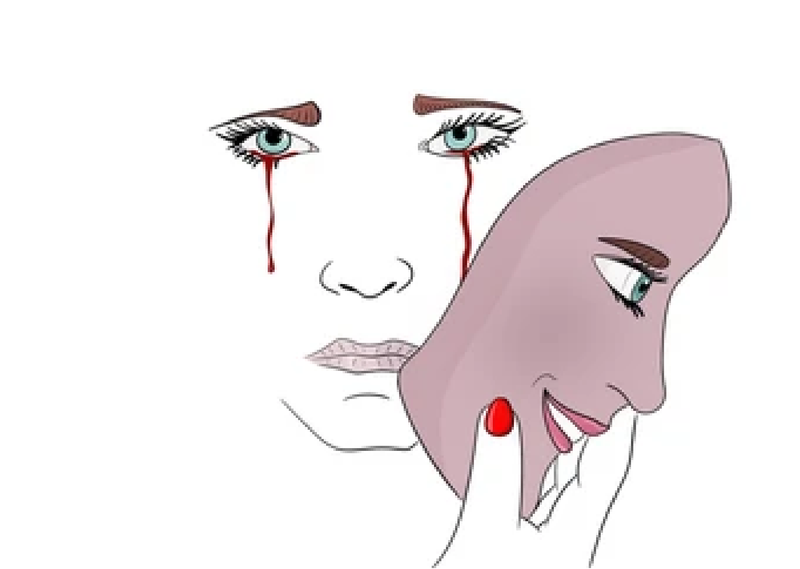Are You A Conflict Avoider? Here’s 20 Ways To Spot Your Style
Conflict avoidance is a behavior that many people exhibit without even realizing it. While it might seem like a way to keep the peace, avoiding confrontation can have its own set of consequences.
In this blog post, we explore 20 unique signs that might indicate you’re a conflict avoider, helping you understand your style and perhaps even embrace some positive changes.
Let’s delve into these telling behaviors, presented with a touch of humor and introspection.
1. You agree just to end the conversation

Finding yourself nodding along to a conversation just to wrap it up? You’re not alone. For some, agreeing becomes a reflex action, a way to dodge potential disagreements. It’s like an escape hatch; a quick route to peace, even if it’s superficial.
But underneath the surface, this habit can lead to feelings of frustration or misunderstanding. It’s essential to recognize when you’re doing this and ask yourself: is this agreement genuine, or just a tool to avoid conflict? Understanding this can lead to better communication and a more authentic connection with others.
2. You smile when you want to scream

Ever found yourself smiling through gritted teeth? For many, a smile is a mask to conceal inner turmoil or disagreement. While it may ease the immediate tension, over time, it can lead to bottled-up emotions.
This incongruity between your real feelings and outward expressions might be a classic sign of conflict avoidance. By understanding that it’s okay to express discomfort, you can gradually move towards more honest interactions. Remember, a smile can sometimes conceal more than it reveals.
3. You ghost people instead of explaining your needs

Have you ever simply disappeared from a conversation, leaving messages unread? This modern phenomenon, known as ghosting, is a way to avoid potentially uncomfortable discussions. It’s a clean break, free from confrontation, yet leaves others puzzled and hurt.
While it might seem easier than explaining your needs or feelings, ghosting can sever relationships and create trust issues. Recognizing this pattern can lead to more compassionate ways of communicating, fostering healthier connections in the long run.
4. You call yourself “easygoing” but you’re actually overwhelmed

The term “easygoing” is often used by those who avoid conflict, a badge of honor for peacekeepers. However, beneath this calm exterior might lie a storm of unresolved stress and overwhelm. By branding oneself as easygoing, the real emotions and needs are often suppressed.
It’s crucial to differentiate between being genuinely relaxed and using this label to mask discomfort or avoidance. Addressing the underlying overwhelm can lead to a more balanced and fulfilling life, where needs are met and stress is acknowledged.
5. You avoid confrontation—even with customer service

Dreading the thought of returning a faulty item? For conflict avoiders, even the smallest confrontation, like dealing with customer service, can feel daunting. It’s not about the product itself but the fear of engaging in a potentially unpleasant interaction.
This behavior might save you from a momentary discomfort, but it also means settling for less than you deserve. Acknowledging this tendency can empower you to speak up when necessary, leading to more satisfactory outcomes, even in minor situations.
6. You’d rather apologize than clarify your point

For those who shy away from conflict, an apology often becomes a default response. It’s easier to say sorry than to delve into complex discussions, even when you’re not in the wrong. This tactic avoids immediate friction but might leave you feeling unheard or misunderstood.
Learning to articulate your point without resorting to apologies can enhance your communication skills. It can create mutual understanding and respect, showing that you value both your perspective and the conversation itself.
7. You downplay your needs constantly

Constantly minimizing your needs to maintain harmony? This is a hallmark of conflict avoidance, where expressing genuine desires feels akin to causing a disturbance. By downplaying what you truly need, you may avoid conflict momentarily, but at a personal cost.
Recognizing this pattern allows you to assert yourself more confidently. It’s about finding a balance between maintaining peace and ensuring your needs are met. Remember, your needs are valid, and expressing them can lead to more authentic and rewarding relationships.
8. You replay what you “should’ve said” later

Ever found yourself revisiting conversations, crafting the perfect retort long after the moment has passed? This habit is common among conflict avoiders, where replaying scenarios becomes a mental exercise in what could have been said differently.
While it might seem harmless, it can lead to feelings of regret and missed opportunities for genuine expression. Acknowledging this tendency can help you to be more present in conversations, allowing your true thoughts and feelings to emerge in the moment.
9. You never hit send on that text

Crafting the perfect message only to let it linger unsent? This is a classic sign of conflict avoidance, where the fear of potential backlash or misunderstanding keeps you from expressing yourself fully. The unsent text becomes a metaphor for unspoken thoughts and feelings.
By recognizing this pattern, you can encourage yourself to hit send and take that step towards open communication. Even if it’s uncomfortable at first, it can lead to more authentic and honest exchanges.
10. You get physically uncomfortable when others argue

Does witnessing an argument make you squirm? For many, physical discomfort is a visceral response to conflict. It’s not just about personal involvement; even observing disagreement can trigger unease.
This reaction might stem from a deep-rooted aversion to confrontation and a desire for peace. Understanding this physical response can help you manage it, allowing you to remain present and composed, even in tense situations.
11. You shut down emotionally when tension rises

When tension mounts, do you find yourself retreating into silence? Emotional shutdown is a common defense mechanism for conflict avoiders. It’s a way to protect oneself from the stress of confrontation by becoming emotionally unavailable.
While it might provide temporary relief, this habit can hinder genuine connection and resolution. Recognizing when you’re shutting down allows you to address the discomfort and find healthier ways to engage, even in challenging situations.
12. You bury resentment and call it “forgiveness”

Do you convince yourself that you’ve forgiven someone, only to feel a lingering resentment? For many conflict avoiders, burying negative emotions is mistaken for forgiveness. It’s an attempt to maintain peace while ignoring unresolved feelings.
True forgiveness involves facing those emotions, not hiding them. By identifying this pattern, you can work on genuine forgiveness, leading to more authentic relationships and personal growth.
13. You struggle to say “I don’t like that”

Ever hesitated to voice your dislike, even over something minor like an incorrect order? This reluctance to express dissatisfaction is common among conflict avoiders. The phrase “I don’t like that” feels like a breach of peace, even when it’s perfectly reasonable.
Learning to articulate your dislikes confidently can enhance your assertiveness and ensure your preferences are acknowledged. It’s a step towards more honest and fulfilling interactions.
14. You fear being seen as “mean”

Does the thought of being perceived as mean keep you from speaking up? Many conflict avoiders fear that asserting themselves might tarnish their image as the nice person. This apprehension can lead to self-censorship and a lack of authentic expression.
Understanding this fear allows you to challenge it, embracing assertiveness without worrying about negative labels. It’s about finding a balance between being kind and being honest.
15. You avoid topics that matter most

Do you steer clear of conversations that hold significant weight? For conflict avoiders, sidestepping important topics is a way to maintain a superficial peace. It’s easier to gloss over issues than to delve into potentially fraught discussions.
However, avoiding these topics can lead to misunderstandings and unresolved issues. Recognizing this pattern can encourage more open and meaningful communication, fostering deeper connections.
16. You pretend things are fine until they’re not

Do you often keep up appearances, insisting everything’s okay even when it’s not? This facade is a common trait among conflict avoiders, who fear that acknowledging problems might lead to confrontation. By pretending all is well, underlying issues are overlooked.
Admitting to challenges and seeking solutions can pave the way for more genuine and effective problem-solving. It’s about embracing reality rather than masking it.
17. You prioritize peace over honesty

Do you value peace so much that you’re willing to sacrifice honesty? Many conflict avoiders prioritize harmony, even if it means compromising the truth. This choice might prevent immediate discord but can erode trust and authenticity in the long run.
Balancing peace and honesty is key to creating lasting, meaningful relationships. Recognizing this tendency allows you to foster both harmony and truthfulness.
18. You stay in places longer than you should

Ever remained in a situation long past its expiration date? Whether it’s a job, relationship, or living arrangement, conflict avoiders often stay put to avoid the turbulence of change. This choice can lead to stagnation and dissatisfaction.
Acknowledging when it’s time to move on can liberate you to seek fulfilling opportunities. It’s about recognizing the courage in change, even when it’s daunting.
19. You make jokes to deflect serious issues

Do you find yourself cracking jokes to steer away from serious discussions? Humor becomes a shield for conflict avoiders, a tool to deflect issues that might stir discomfort. While laughter can lighten the mood, it can also divert attention from necessary conversations.
Learning when to set humor aside and address the heart of a matter can lead to more meaningful interactions, where issues are resolved rather than sidelined.
20. You feel guilt just for disagreeing

Do you experience guilt simply for having a different opinion? For conflict avoiders, disagreeing might feel like rocking the boat, leading to internal conflict and remorse. It’s as if harmony is valued over personal stance.
Recognizing this pattern is the first step in embracing disagreement as a healthy part of communication. It’s not about winning or losing but about expressing your truth without self-inflicted guilt.







